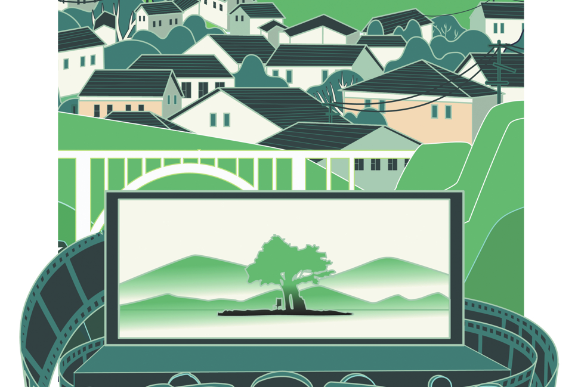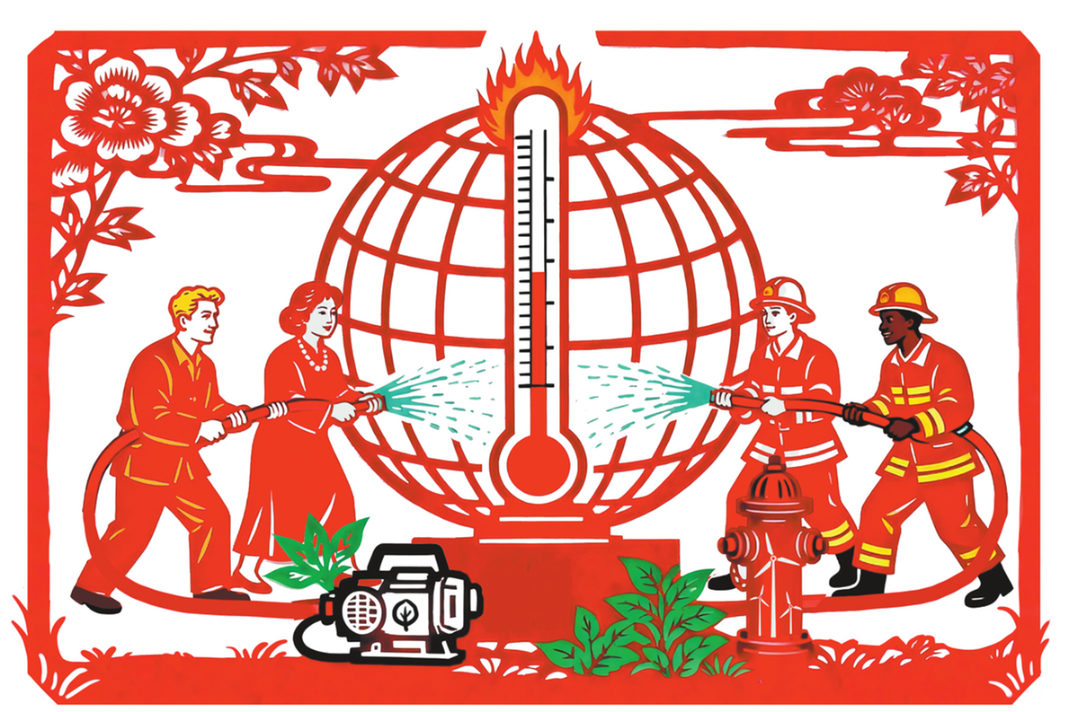Only solidarity can fight future pandemics


When the world came to realize in 2020 that it was facing a pandemic, the immediate concern was how to prevent and control the spread of the novel coronavirus in order to protect lives. Since the onset, the COVID-19 pandemic has proved to be different from previous localized disease outbreaks. The virus spread so rapidly that within weeks it was ravaging lives and public health systems both in the developing and developed countries.
It was a new phenomenon that needed a resolute and urgent preventive action.
The world has learned to control the outbreak of cholera, malaria, the Ebola virus and schistosomiasis, mostly in developing countries.
But COVID-19 turned out to be a new type of disease, reminiscent of the "Great Influenza" of 1918. It broke out at a time when global multilateral bodies and other international institutions of cooperation were weakening, and unilateralism, hubris and ultra-nationalism were growing stronger, especially in developed Western countries.
The situation was dire, as a majority of the developed countries tended to limit the fight against the pandemic within their national borders, leaving the rest of the world to fend for itself, which resulted in the lack of shared experiences in the global fight against COVID-19.
On the other hand, China led by example, launching a massive international solidarity campaign and helping some 70 countries with advice and medical supplies. Some observers even called China's sincere efforts "mask diplomacy", but the truth or fallacy of the moniker is in the facts. And the fact is that China provided critical and urgently needed materials for many countries so they could contain the pandemic.
From 2020 to 2022, China was at the helm of international solidarity against COVID-19. It donated testing kits and personal protective equipment (PPE) to many countries without setting any diplomatic or trade-related criterion. It selflessly shared with other countries its experiences of tracing, testing and treating suspected cases, and monitoring and curbing the spread of the virus, thereby saving many lives.
Africa has a long-standing tradition of cooperation with China. But during the pandemic, China's cooperation was not limited to individual countries. It extended global solidarity through contributions to multilateral bodies such as the World Health Organization, the UN International Children's Emergency Fund, the African Union and the Forum on China-Africa Cooperation.
At the multilateral level, for example, China cooperated and shared experiences with and offered assistance to the WHO, thereby strengthening the global fight against COVID-19. In terms of material supply, China helped the WHO purchase PPE, established reserve centers of supplies in China, participated in the WHO's "Access to COVID-19 Tools Accelerator" initiative, so as to expedite the development, production and equitable distribution of new medical tools, exported protective materials to about 200 countries and regions, which included more than 70.6 billion masks, 340 million PPE, 115 million pairs of glasses, 96,700 ventilators, 225 million testing kits, and 40.29 million infrared thermometers.
As for financial assistance, China contributed $50 million in two batches to the WHO, $2 billion to the international community within two years, and helped the world health body's COVID-19 Solidarity Response Fund to raise funds in China.
China further demonstrated its solidarity with the rest of the world when it offered COVID-19 vaccines to other countries and helped build plants in other developing countries to jointly produce vaccines so they could be sent to other countries in a shorter time.
But China's efforts to strengthen the fight against COVID-19 also became a "battle of narratives", as China's actions were not appreciated by the West. The question, however, is: How do efforts to save lives become a bone of contention for some countries?
The pandemic may be on its way out, but we need to build new and better systems to better prepare the world for future pandemics.
First, fundamental changes in the public health enterprises emerged due to the challenges created by the pandemic. So, what do the lessons we learned during the pandemic should be done to be better prepared for pandemics in the future?
Strengthening cooperation between international, multilateral and regional organizations must be given priority, because such organizations can facilitate the sharing of experiences and more easily distribute humanitarian aid.
Second, leaders of different countries should maintain constant and constructive communication beyond their bilateral relations in order to prepare for future pandemics. The example of the periodical communication over the phone between the Chinese and South African presidents ought to become part and parcel of a blueprint of engagement during crises such as pandemics.
Third, public-private partnerships (PPPs) should serve as a mainstay component of public health interventions. In fact, the pandemic created both challenges and opportunities to expand PPPs as an imperative component of the fight against pandemics. The evidence of the success of PPPs cooperation strategies was apparent in China's efforts to strengthen the global fight against COVID-19.
China's PPPs cooperation that could be fine-tuned to be used to fight future pandemics include training of capable and knowledgeable people, and developing robust logistics and supply chains, and intelligent data infrastructure.
And fourth, the development of the Center for Disease Control and Prevention ought to be a norm rather than an emergency measure, for which more funds should be allocated to the CDC.
The pandemic has taught the world that viruses respect no borders and that the survival of humans depends on building a community with a shared future for humankind.
The author is a Sinologist and a founder of SELE Encounters.
The views don't necessarily reflect those of China Daily.


































